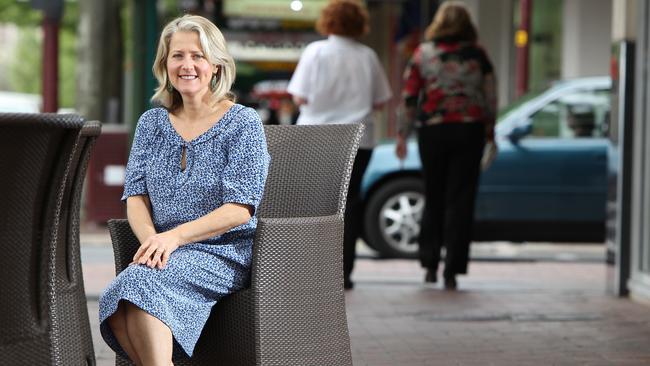‘Chick-lit? The term made me foam at the mouth’: Maggie Alderson claps back
For decades Maggie Alderson has written bestsellers that have been eagerly devoured by (mostly female) readers all over the world. Ahead of her latest release she reflects on the unwanted label which has dogged her entire career.

Quite strangely for you, it has been seven years between books. What took so long? I hit a roadblock. It was a combination of things. My mum was in her mid-nineties and she didn’t want to leave her own home, but she couldn’t really stay in it. You know, all of my friends have gone through some kind of version of this. Then she died, and you know, that’s not a bundle of laughs. And then six months after she died, Covid happened. And during Covid, I don’t know about you, but I couldn’t read fiction.
I’ve got to say I agree. I couldn’t really relax. Exactly. I could watch crap television, I could watch Bridgerton, but I couldn’t read a novel. I could read a book about mushrooms, or trees, or black slime – but I couldn’t sustain a fiction narrative. I didn’t have the bandwidth. And if you can’t read it, you can’t write it.
How did you get your mojo back? I had to train myself to read again, starting with Winnie the Pooh, and then I read Ladybird books [for young children], which I loved as a child. I sort of had to go back in time and learn to read again. I read a lot of quite light books, and then I got back into my stride and I knew I could write again.
Among the themes in your new book Would You Rather (out now through HarperCollins) is the central relationship between a mother and her son. Why did you want to tap into that dynamic? I find this generation of young men really interesting, they’re really different. I find they are very respectful, and yes there’s the hideous Andrew Tate element, sure, but it seems to me that young men these days are the sons of women who don’t even need to call themselves feminist, but they are feminists by definition. I feel like it’s sort of bedded in, like from the nipple. Also, I do this thing where I find characters by pulling pages out of magazines, and I pulled out this picture of this young man who I found so interesting and compelling to look at, and that’s where the character Beau came from.
Does that happen to you often? That you find a visual cue for a character? Yes, yes, I go looking for them. I think it’s because I used to be in magazines that I do it. But one of the reasons that this book took so long is that I actually pulled out too many pictures – my study was covered in them, and it was too much. There were too many people in the room.
How do you feel when you hear the term “chick lit” to describe your work and that of other female writers? You don’t hear it anymore, thank God. At the time, it made me foam at the mouth. I’d be furious because you could have a brilliant writer like Marian Keyes who was called “chick lit” and then Nick Hornby, who of course, was “contemporary fiction”. And her books are better than his books.
You spent years on Fleet Street as a reporter and editor, then worked in Australia as a columnist. We often hear about the good old days of publishing, but how has media changed for the better? I particularly love TikTok for the amazing breadth of talent you get to see. I mean, in the UK, there are about eight people who get to host all the big TV shows. One woman gets to do Wimbledon then the Olympics. Why one person? On TikTok there are thousands of people who are hilariously funny or brilliant. As for the mainstream media, I still fiercely defend it. I get very upset when it is not valued. When the world goes to pot you’ll want to hold onto that mainstream media.
Your father, a doctor, was a huge influence on your career. Tell us about him. Every weekend he’d read The Sunday Times and the Observer, and he read them cover to cover. One Sunday, he was reading, and he was laughing and laughing, and then he got up, put the paper down, and went out. So I picked it up to see what he’d read, and it was Clive James. After that, I read the columnists every week, I just loved the format and I learned from the masters. My father died when I was 23 and the first thing I had published, came out right after he died – I had it put in his coffin with him.




To join the conversation, please log in. Don't have an account? Register
Join the conversation, you are commenting as Logout